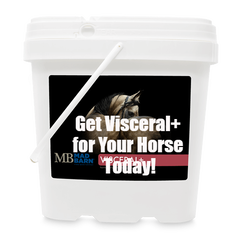|
Horse Health Tips For Students includes information for our students about common horse health care issues. These posts are to bring awareness to horse welfare issues - always ask your veterinarian for advice and treatment protocols for your own horse! After a winter with record snowfall, we are now into a very wet spring. This brings to attention a couple of health issues that anyone working with the schoolies needs to know about and watch for! One of them is thrush. What is thrush? Thrush is most commonly a bacterial, and sometimes fungal, infection of the horses frog. Remember, the frog is the living, growing, soft tissue on the bottom of the horses foot. Thrush occurs more commonly in wet conditions. How can you tell if it's thrush? Generally, thrush is identified by the foul smell/odour that can be noticed when you are cleaning the horses foot. It can also be identified by a black discharge coming from the frog. It is generally painful when pressure is applied to frog and the horse may appear lame.
What do you do if you suspect a horse has thrush? Let your coach or junior coach know if you think your horse has thrush. If you are a horse owner, contact your farrier and veterinarian to discuss a coordinated treatment plan. How do you treat thrush? The horse should be kept in a dry environment as much as possible. Things like additional bedding or more frequent stall cleanings may be recommended, as well as, moving the horse to a dry paddock. Your farrier and vet are needed to ensure successful treatment of thrush. Generally, the dead tissue on the frog will need to be removed by your farrier or vet and then the hoof treated. Thrush treatments may include products available from your local horse supply store like Kopper Tox or No Thrush, or a veterinary prescribed treatment product. Follow the products recommended usage on the label. If left untreated or treatment is unsuccessful, thrush can move deeper into the hoof tissue and cause significant lameness issues. Ensuring your horse is up to date with their Tetanus vaccination is also important, as damaged frog tissue can be a great access point for Tetanus to infect your horse. How can you prevent thrush? Frequent hoof care and keeping a clean dry environment are the two most important factors in monitoring for and preventing aggressive cases of thrush. Your farrier is great asset for identifying thrush early and helping with continued treatment and monitoring. This article was written by Dr. Gwen Donohoe, PhD
0 Comments
Your comment will be posted after it is approved.
Leave a Reply. |
AuthorGwendolyn Donohoe, PhD, is the owner/manager at Sagehill Stables. Read more here Archives
March 2024
Categories
All
|


